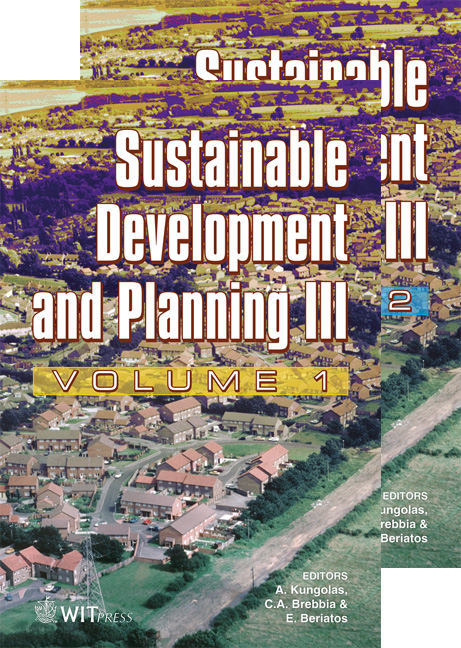Assessment Criteria And Program Of Possibilities (P.o.P.): Integration Of New Technologies In Architecture And Urban Planning
Price
Free (open access)
Transaction
Volume
102
Pages
11
Published
2007
Size
294 kb
Paper DOI
10.2495/SDP070832
Copyright
WIT Press
Author(s)
A. van Timmeren
Abstract
In the long term only closed cycles for processes and use of material could result in a permanent urban environment. The presented way of design tries to take the well-known metaphoric factor 20 improvement as a starting point: to preserve the essential flows and try to sustain the process to shape them towards closed cycles. The idea is to make urban development, mainly resulting in buildings and technical infrastructures, following to the (social) needs and goals, which form the basis of physical networks of the logistical chains, and not the other way around, like it can often be qualified today. In this way it will be possible to uncouple sustainable solutions from the existing paradigms, without the release of other relevant criteria for today’s society. The main question is how to couple scientific research to architectural and urban design. Although often presented as such, this paper states that design cannot be qualified as scientific research. However, there are ways to interconnect scientific research and design: there is a reciprocal relationship. This paper introduces a new way to connect design and scientific research that can be used in urban development: Design by research is based on the introduction of a so-called ‘Programme of Possibilities’ (P.o.P.). The P.o.P. is mainly an essay of clues based on scientific research with a focus on redesign. This focus involves lateral thinking and creative alternatives that are not hindered by existing paradigms. Keywords: Program of Possibilities, new sustainable technologies, spatial criteria, environmental criteria, social criteria.
Keywords
Program of Possibilities, new sustainable technologies, spatial criteria, environmental criteria, social criteria.





